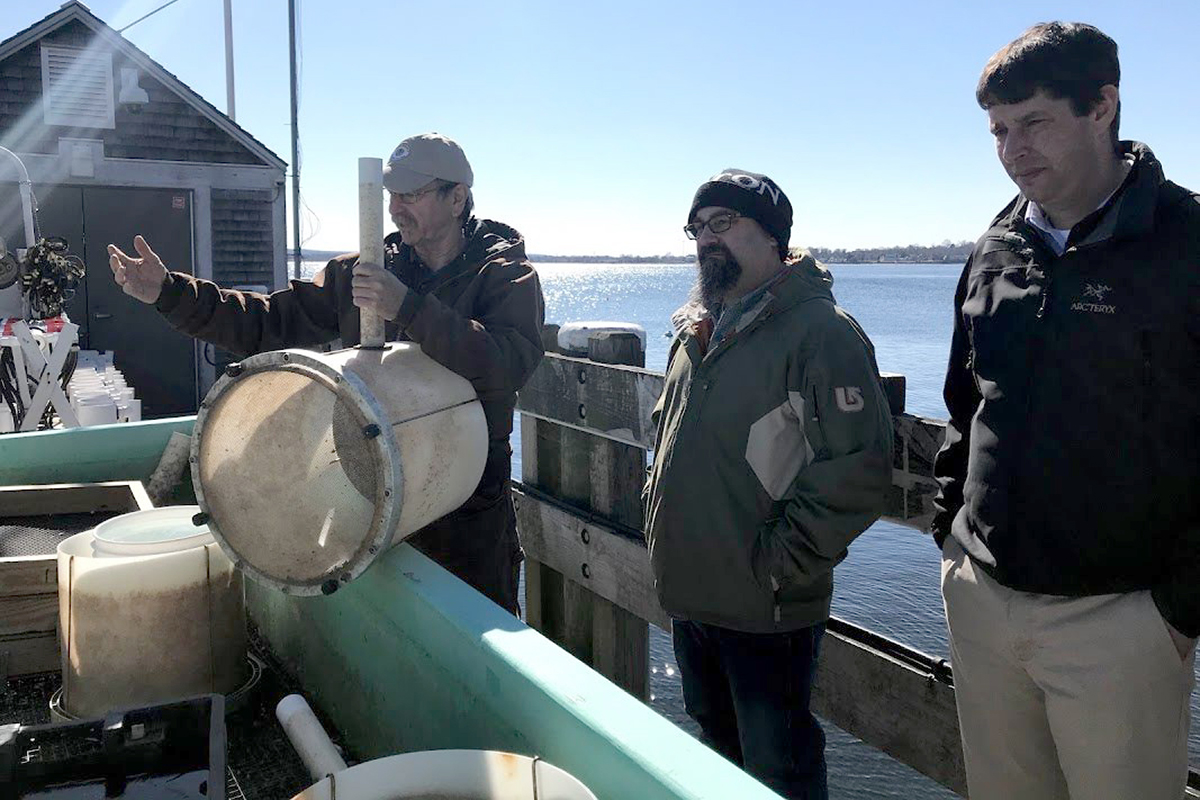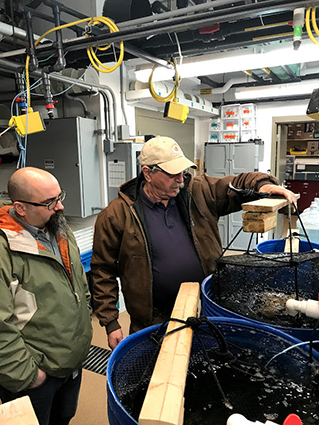Roger Williams Shows Off Its Pearl of an Oyster Farm
- by Peter Todaro

Associate Professor of Biology Dale Leavitt shows Executive Chef Jon Cambra and Café Manager Josh Hennessy the submerged tanks
Local oysters are a treasure, and students at Roger Williams University in Bristol, RI, get to enjoy eating these frequently thanks in large part to the efforts of the on-campus oyster research farm.
The Bon Appétit team at Roger Williams recently learned more about the oyster operation through a tour led by Dale Leavitt, an associate professor of biology who oversees the research facility and a host of programs related to promoting the growth of oyster farming in Rhode Island and throughout New England.

Jon looks at the oyster breeding tanks with Dale, who oversees the research facility
Marketing Manager/Controller Stephanie Keith, Café Manager Josh Hennessy, Executive Chef Jon Cambra, and General Manager James Gubata, and I first visited the indoor side of the facility, where we got to see how oyster larvae are bred and fed before they grow large enough to be moved out into the waters of Mount Hope Bay.
After learning about many different varieties of oysters and the breeding of new species that Dale has been working on, we ventured outside on the dock. The submerged boxes just offshore house thousands of oysters, Dale explained, and then detailed the oyster life cycle and wild food sources. We also discussed the decline of oyster populations and how they are functionally extinct worldwide due to environmental degradation and habitat loss, with only small pockets of wild oysters left. The majority of oysters consumed by humans are found in aquaculture operations.
Throughout the tour, James and Jon chatted with Dale about various local oyster farmers whom they have all worked with, and the unique terroir — or rather “merroir”— of Rhode Island’s oysters. It was a great opportunity for the culinary team to learn even more about this vital source of local seafood right in their backyard.